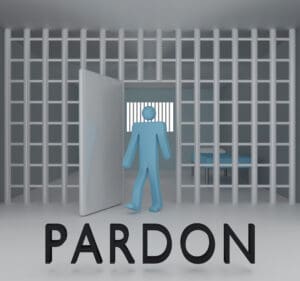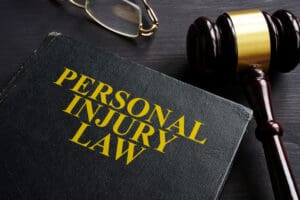With child custody cases on the rise, it is crucial to have a clear understanding of what it means to be deemed an unfit parent in the eyes of the law. According to legal standards, the implications of being labeled as such can have serious consequences on the well-being of a child, as well as on parental rights. This blog post aims to provide guidance on the legal definition of an unfit parent, shedding light on the factors that are considered and the steps that can be taken to navigate through this complex and sensitive issue.
Defining an Unfit Parent in Legal Terms
Statutory Definitions
For a parent to be deemed unfit in legal terms, the statutes of each state provide specific criteria that must be met. Any parent who fails to provide the basic necessities for their child, such as food, shelter, medical care, and education, may be considered unfit in the eyes of the law.
Factors Determining Fitness
Factors determining a parent’s fitness can vary but often include considerations such as drug or alcohol abuse, neglect, abuse, criminal activity, mental illness, and inability to provide a safe environment for the child. Any of these factors, if proven in court, could lead to a determination of parental unfitness.
- Drug or alcohol abuse: A parent’s substance abuse problem can be a significant factor in determining fitness, as it may impair their ability to care for their child properly. Assume that a history of addiction can jeopardize a parent’s custody rights.
- Neglect or abuse: Any evidence of neglect or abuse towards a child is a serious concern and may lead to a finding of parental unfitness. Assume that a pattern of neglect or abuse will not be tolerated by the courts.
Unfit
Conclusively, the legal definition of an unfit parent is one who fails to meet the necessary standards of care and responsibility required by law. This can have serious implications for both the parent and the child involved in the case. It is crucial to understand the criteria and factors that contribute to a determination of parental unfit in order to navigate this complex legal issue with clarity and precision.
The Legal Process for Determining Parental Fitness
Jurisdictional Variances
If a determination of parental fitness needs to be made, it is necessary to understand that the legal process can vary across jurisdictions. Each state has its own laws and guidelines for assessing parental fitness. This can include the criteria used to determine parental fitness, the procedures followed, and the weight given to certain factors.
Role of Child Protective Services
On Determining parental fitness, Child Protective Services (CPS) plays a crucial role in investigating allegations of child abuse and neglect. CPS works to ensure the safety and well-being of children and may be involved in cases where a parent’s fitness is called into question. They conduct thorough investigations, gather evidence, and make recommendations to the court regarding parental fitness.
Services provided by CPS can include interviews with the child, home visits, and assessments of the parent’s ability to provide a safe and nurturing environment. These investigations are critical in helping the court make informed decisions about parental fitness.
Court Procedures and Evidence
Parental involvement in court procedures for determining fitness can include presenting evidence, attending hearings, and participating in evaluations. The court may consider a variety of evidence, such as testimony from witnesses, expert opinions, and reports from CPS. The goal is to gather as much information as possible to make a fair and accurate determination of parental fitness.
The court procedures are designed to ensure that the best interests of the child are the primary focus of the decision-making process. Ultimately, the court will make a determination based on the evidence presented and the legal standards for parental fitness.
Impacts on Child Custody and Welfare
After a determination of parental unfitness, the most significant impact is often reflected in child custody decisions.
Child Custody Outcomes
Any ruling on parental unfitness can have serious repercussions on child custody arrangements. In cases where one parent is deemed unfit, the court will prioritize the best interests of the child when determining custody. This can result in sole custody being awarded to the other parent or even to a third party, such as a grandparent or other relative.
Long-Term Implications for the Child
Impacts on child welfare and development can be profound when a parent is found to be unfit. The long-term implications for the child can include emotional trauma, instability, and difficulties in forming secure attachments. These effects may manifest in behavioral issues, academic struggles, and social challenges as the child navigates their upbringing in the absence of a fit parental figure.
Impacts on a child’s long-term well-being can extend well beyond the immediate custody arrangements. The emotional scars left by being raised by an unfit parent can influence the child’s relationships, self-esteem, and overall life trajectory.
Support Systems and Safety Nets
To ensure the well-being of a child with an unfit parent, support systems and safety nets play a critical role. The involvement of child welfare agencies, court-appointed advocates, counselors, and other professionals is crucial in providing the necessary care and guidance for the child’s ongoing welfare.
The availability of support systems and safety nets can make a significant difference in mitigating the negative impacts of being raised by an unfit parent. These resources can offer stability, guidance, and interventions to help address any issues that may arise as a result of the parental unfitness.
Implications on child custody and welfare are far-reaching and require careful consideration to safeguard the best interests of the child. It is crucial to prioritize the safety and well-being of the child when navigating the complexities of parental unfitness in legal proceedings.
Rights of the Parent Accused of Being Unfit
Your rights as a parent facing accusations of being unfit are crucial to ensuring a fair legal process. It is important to understand what rights you are entitled to during this challenging time to protect your relationship with your child and navigate the legal system effectively.
Due Process in Legal Proceedings
An accused parent has the right to due process in legal proceedings. This means that they have the right to be informed of the allegations against them, the right to present evidence in their defense, the right to confront witnesses, and the right to a fair and impartial hearing. It is imperative that all legal proceedings are conducted in a manner that upholds these rights to ensure a just outcome.
The Right to Legal Representation
Proceedings involving allegations of unfit parenting can be complex and emotionally charged. It is crucial for the accused parent to have legal representation to navigate the legal system effectively. Legal representation can ensure that the parent’s rights are protected, provide guidance on legal procedures, and advocate for the best interests of the parent in court.
The process of legal representation can significantly impact the outcome of the case, so it is imperative for the accused parent to secure competent legal counsel.
The Right to Appeal
The right to appeal is an important safeguard for parents who believe that an unfair decision has been made regarding their parental fitness. This allows the accused parent to challenge the court’s decision and seek a review by a higher court. The right to appeal provides a mechanism for parents to seek justice and ensure that their rights are upheld throughout the legal process.
One must be aware of the deadlines and procedures for filing an appeal to exercise this right effectively.
Interventions and Remedies
Once again, when a parent is deemed unfit, interventions and remedies are put in place to protect the best interests of the child. These measures aim to either rehabilitate the parent, establish alternative custody arrangements, or consider adoption and permanent guardianship options.
Rehabilitation Programs for Parents
For parents struggling with issues like substance abuse, anger management, or mental health challenges, rehabilitation programs offer a structured approach to addressing these issues. These programs typically involve therapy, counseling, and support groups to help parents overcome their obstacles and become capable caregivers for their children.
Alternative Custody Arrangements
To ensure the safety and well-being of the child, alternative custody arrangements may be considered. This could involve placing the child with a relative, a foster family, or in a residential facility, depending on the specific circumstances of the case.
Rehabilitation programs can be an effective tool in helping parents address their underlying issues and develop the necessary skills to provide a stable and nurturing environment for their children. By participating in these programs, parents demonstrate their commitment to making positive changes and creating a better future for their family.
Adoption and Permanent Guardianship Options
With adoption and permanent guardianship options, the focus shifts towards finding a permanent and stable living situation for the child. In cases where the parent is unable to regain custody or the termination of parental rights is deemed necessary, adoption or permanent guardianship may be considered to provide the child with a loving and secure home environment.
Arrangements for adoption or permanent guardianship involve legal proceedings to transfer parental rights to the adoptive parents or permanent guardians. This process ensures that the child’s long-term needs are met and that they have the opportunity to thrive in a supportive and nurturing family environment.
Protecting the Child’s Best Interests
The Role of the Guardian Ad Litem
All child custody cases involve complex emotional and legal issues, and determining what is in the best interest of the child can be challenging. The role of the Guardian Ad Litem (GAL) is crucial in these situations. The GAL represents the child’s best interests by investigating the case, interviewing all relevant parties, including the child, and making recommendations to the court based on their findings. They act as the voice of the child in court proceedings, ensuring that their needs and wishes are taken into consideration.
State vs. Parental Rights
The balance between parental rights and the state’s obligation to protect children is a critical aspect of cases involving unfit parents. The state has the authority to intervene when a child’s safety or well-being is at risk due to parental neglect or abuse. While parents have the right to raise their children as they see fit, this right is not absolute and must be weighed against the best interests of the child. The state’s intervention is justified when the child’s safety is in jeopardy, and parents are unable or unwilling to provide a safe environment.
When determining parental fitness, the court considers various factors, including the child’s physical and emotional needs, the parent’s ability to meet those needs, any history of abuse or neglect, and the stability of the home environment.
Involvement of Mental Health Professionals
Professionals in the field of mental health play a vital role in cases involving unfit parents. They assess the psychological well-being of both the parents and the child, provide expert testimony to the court, and offer recommendations for treatment or intervention. Their evaluations contribute to the court’s understanding of the family dynamics and help in determining the child’s best interests. Mental health professionals can provide valuable insights into the impact of parental behavior on the child’s emotional development and well-being.
Protecting the child’s best interests requires a multidisciplinary approach that considers legal, emotional, and psychological aspects to ensure a safe and healthy environment for the child.
Guidance for Parental Fitness Evaluation
Unlike criminal trials where the burden of proof lies with the prosecution, in cases of parental fitness evaluation, the burden is on the evaluator to assess the fitness of a parent. This evaluation process requires careful consideration of various factors to determine the parent’s ability to provide a safe, nurturing, and stable environment for their child.
Recommendations for Parents
Recommendations: Parents undergoing a fitness evaluation should prioritize the well-being of their child over personal interests or conflicts with the other parent. It is crucial to demonstrate a willingness to cooperate with the evaluation process and show a genuine commitment to addressing any concerns raised during the assessment. Seeking guidance from a legal professional or counselor can also be beneficial in preparing for the evaluation.
Concerns for Practitioners and Evaluators
Evaluation: Practitioners and evaluators involved in parental fitness assessments must be thorough, impartial, and adhere to ethical standards. There is a risk of bias influencing the evaluation process, whether consciously or unconsciously. It is necessary for evaluators to remain neutral, objective, and base their assessments on factual evidence rather than personal assumptions or opinions.
With proper training and ongoing professional development, practitioners and evaluators can enhance their skills and knowledge in conducting parental fitness evaluations. Collaborating with multidisciplinary teams, seeking supervision from experienced professionals, and staying informed about current research and best practices are necessary for ensuring the validity and reliability of the evaluation process.
Community and Educational Resources
Educational: Community and educational resources can offer valuable support and guidance to parents navigating the challenges of a parental fitness evaluation. Parenting classes, counseling services, support groups, and online resources can provide parents with the tools and information they need to address any issues identified during the evaluation process.
Understanding the importance of accessing these resources can help parents strengthen their parenting skills, improve their relationships with their children, and demonstrate their commitment to providing a nurturing and supportive environment for their child.
To wrap up
As a reminder, understanding the legal definition of an unfit parent is crucial for anyone involved in family law cases. By examining the factors that contribute to a parent being deemed unfit, we can better protect the well-being of children and provide guidance on how to navigate complex family dynamics. This knowledge allows legal professionals, social workers, and other stakeholders to make informed decisions that prioritize the best interests of the child.
Ultimately, recognizing the signs of an unfit parent and taking appropriate action can prevent harm and provide a safe environment for children to thrive. By adhering to legal standards and seeking appropriate interventions when necessary, we can ensure that children are protected and supported in their growth and development.





















